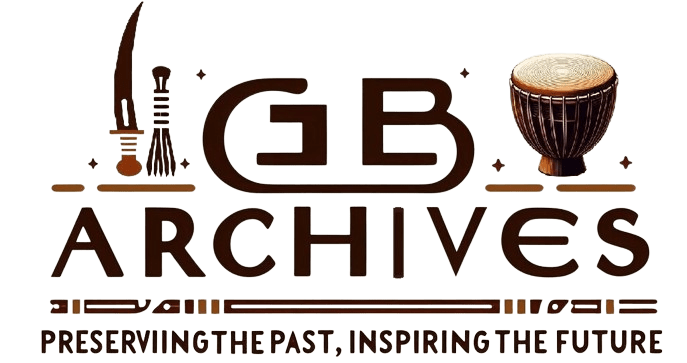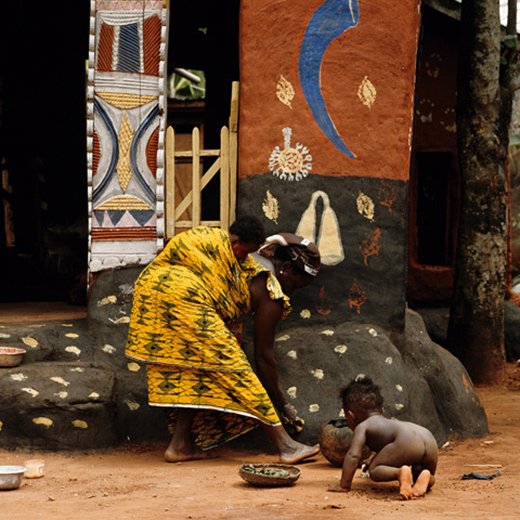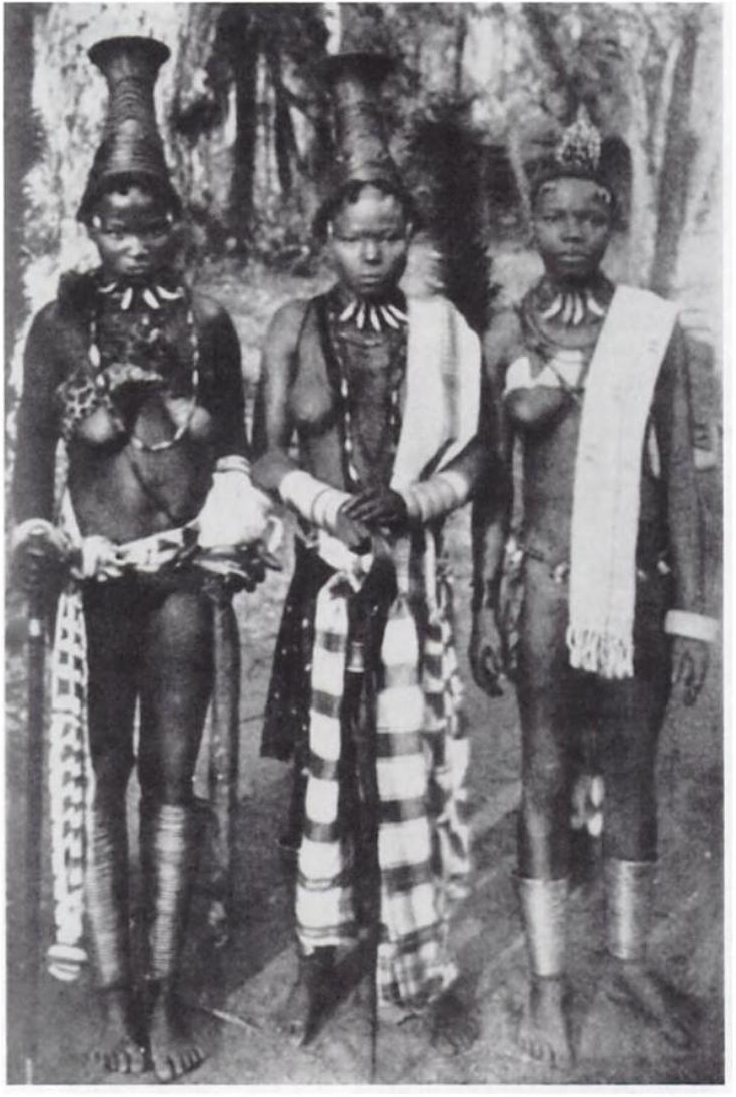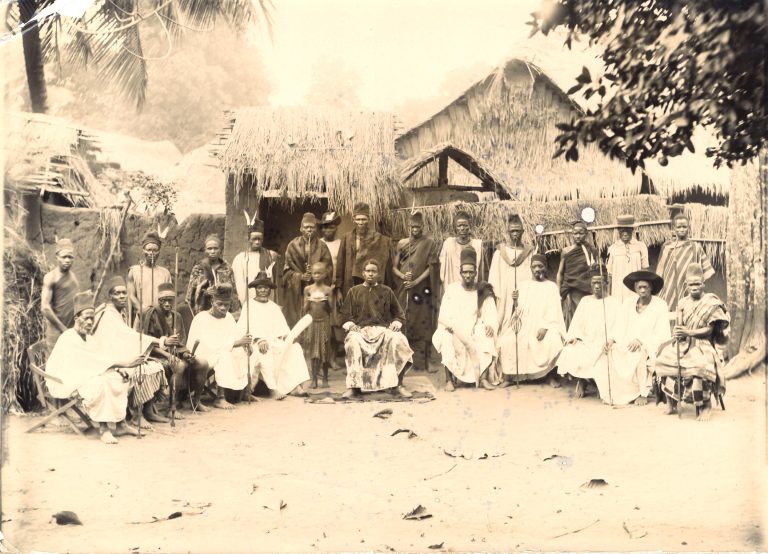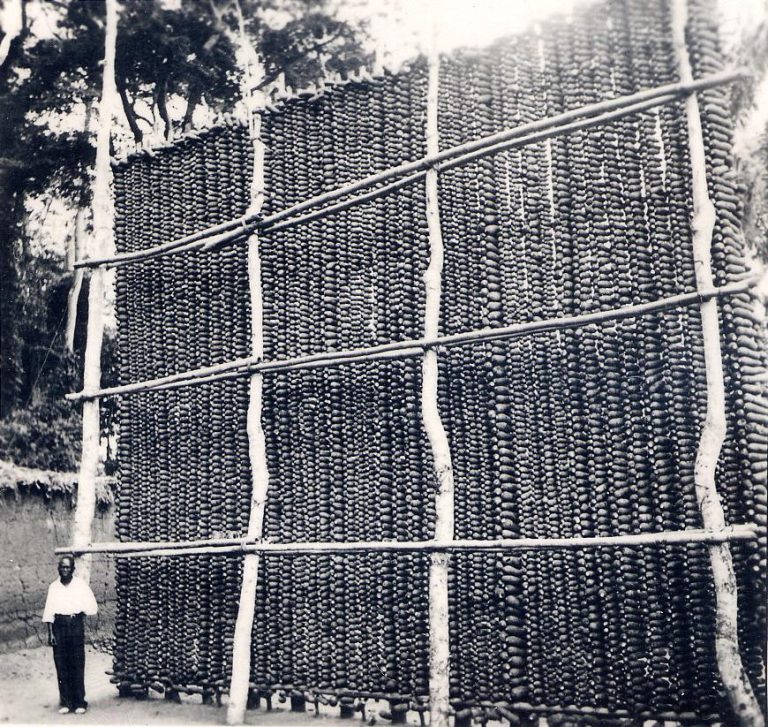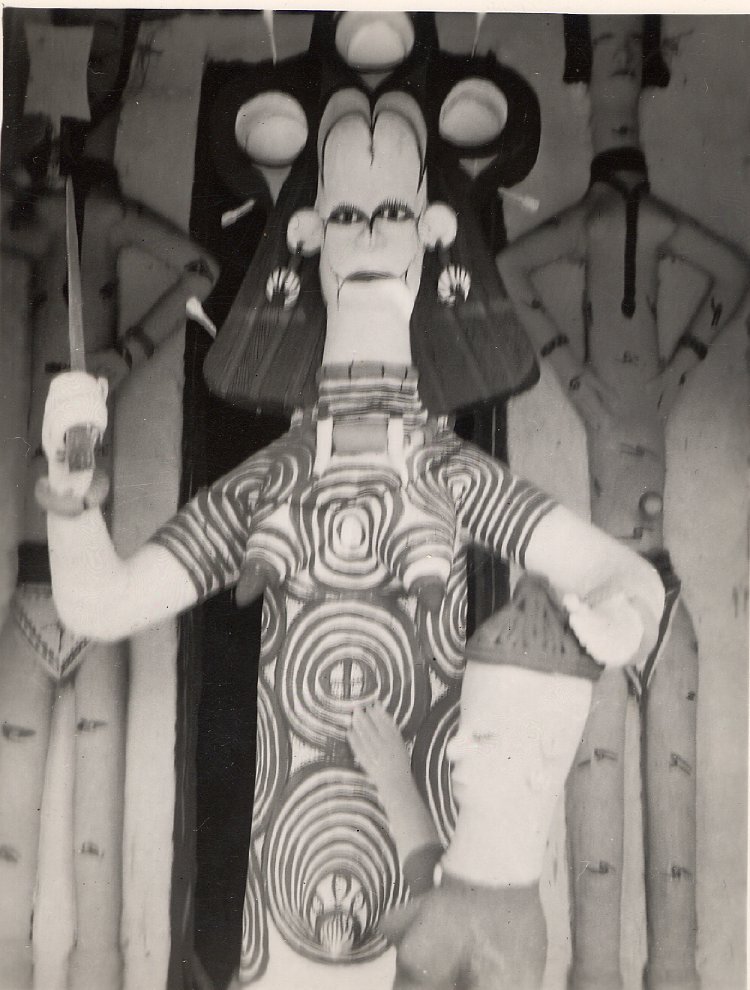Igbo societies are intricately structured around agnatic kinship, where lineage and descent play a crucial role. At the heart of this system is the Okpara Ukwu, the first son of a family. The Okpara heads the Umunna, a section of the village tracing its lineage back to a common father. As we move up the patrilineage, the Umunna expands until it encompasses the entire community.
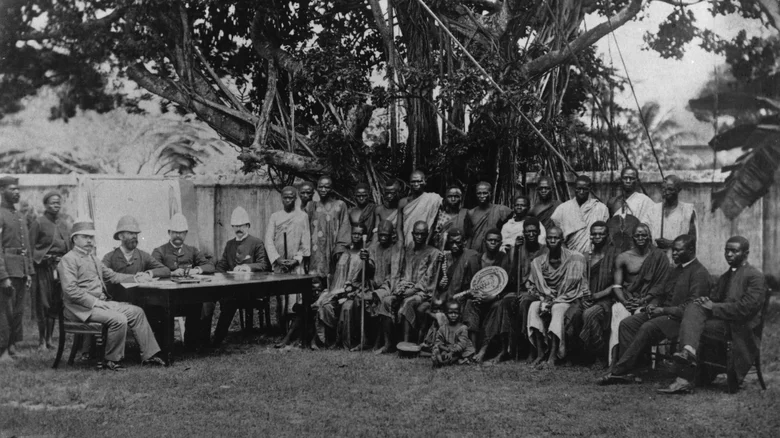
The Role of the Okpara
The Okpara assumes significant religious and social responsibilities within the household. These elders, typically the first sons of deceased fathers, oversee ritual duties and hold the sacred Ọfọ (staff of authority) during Umunna meetings. Even after British colonization, the Okpara system continued to influence leadership in many Igbo communities.
The Okpara is not only a leader but also a custodian of family traditions and values. He is responsible for maintaining the family’s honor and ensuring that the lineage’s customs are upheld. This role includes mediating disputes within the family and representing the family in community matters.
Ritual Authority
In Igbo culture, a person with a living father relies on them for religious duties. The Okpara’s role extends beyond mere leadership; it encompasses spiritual guidance. However, this responsibility isn’t exclusive to men. The eldest daughter (Ada) also shares in these duties, tending to women’s shrines under the Umuada (daughters of the lineage). Married women bring their Chi shrine under the household’s protection.
Interestingly, those who aren’t household heads have limited involvement in religious duties. Sons must wait until their father’s passing before acquiring true ritual authority, including the right to bear titles. Thus, in Igbo culture, a man is not considered a man until his father dies.
The Influence of Kinship on Leadership
Kinship in Igbo societies extends beyond the immediate family to include broader community structures. The Umunna, which is a collective of patrilineages, plays a crucial role in governance and social organization. Leadership within the Umunna is often based on seniority and the ability to maintain social harmony. This system ensures that leadership is both inclusive and representative of the community’s diverse interests.
The Role of Women in Igbo Leadership
While the Okpara holds significant authority, women also play vital roles in Igbo leadership structures. The Umuada, a council of daughters from the lineage, wields considerable influence, particularly in matters concerning women and children. They are responsible for maintaining social order and ensuring that the rights of women are protected.
Historical Context and Evolution
The historical context of Igbo leadership structures is essential to understanding their evolution.
Before colonial rule, Igbo societies were largely decentralized, with leadership roles distributed among various kinship groups. The British colonial administration, however, introduced the Warrant Chief system, appointing local leaders to assist in governance. This system often disrupted traditional leadership dynamics and sowed seeds of discord among the Igbos.
By manipulating local leadership structures and creating divisions within Igbo communities, the colonialists aimed to maintain control and suppress resistance. This strategy not only altered the traditional roles of leaders like the Okpara but also had long-lasting impacts on the social and political fabric of Igbo society.
Despite these disruptions, the principles of agnatic kinship and the roles of the Okpara and Umuada continued to influence Igbo communities. The resilience of these traditional structures highlights the enduring importance of kinship and leadership in maintaining social cohesion and cultural identity.
Contemporary Relevance
Today, the principles of agnatic kinship and the roles of the Okpara and Umuada continue to influence Igbo communities. While modern governance structures have evolved, traditional leadership roles remain significant in cultural and social contexts. The Okpara still plays a crucial role in family and community matters, and the Umuada continue to advocate for women’s rights and social justice.
As we explore the past let’s encourage dialogue. What aspects of Igbo culture resonate with you? Share your thoughts below!
References
- Leadership styles in Igbo – IOSR Journals.
- Pre-colonial Administration of The Igbo Society – Bscholarly.
- Diokpara – the privileges and responsibilities of a firstborn in Igbo.
- African art – Igbo, Sculpture, Rituals | Britannica.
- The Role of Spirits and Ancestral Spirits in Igbo Mythology: Guardians.
- Kinship: The Bedrock of African Political System with Particular.
- The Opara Role (First Male Child) in an Igbo Home | What it is & how to navigate it.
- Igbo Culture & Tradition: An Overview.
- A Philosophical Exposition of Kinship in Igbo African Ontology.
- Different Ritual Symbols in Igbo Traditional Religion and Their.
Explore Further
For more on this topic, explore our recommended readings below. Each provides deeper insights and a broader perspective.
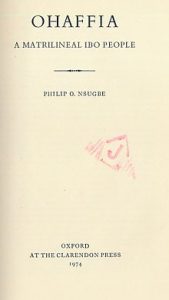 Recommended Books
Recommended BooksAuthor: Philip O. NsugbePublisher: Oxford University PressPublication Date: January 1, 1974Format: HardcoverPages: 152ISBN-10: 0198231822ISBN-13: 978-0198231820Language: English Overview “Ohaffia: A Matrilineal Ibo People” by Philip O. Nsugbe is an ethnographic study that explores the unique matrilineal kinship system of the Ohaffia people, a subgroup of the Igbo in Eastern Nigeria. This book provides a detailed analysis […]
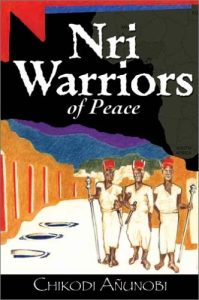 Recommended Books
Recommended BooksTitle: Nri Warriors of PeaceAuthor: Chikodi AñunobiPublisher: Zenith PressPublication Date: February 28, 2006Format: PaperbackPages: 378ISBN-10: 0976730308ISBN-13: 978-0976730309Language: English Overview “Nri Warriors of Peace” by Chikodi Añunobi is a captivating novel that delves into the rich history and culture of the Nri kingdom, the cradle of Igbo civilization in Southeastern Nigeria. Añunobi’s debut work is a […]
Discover more from Igbo Archives
Subscribe to get the latest posts sent to your email.
